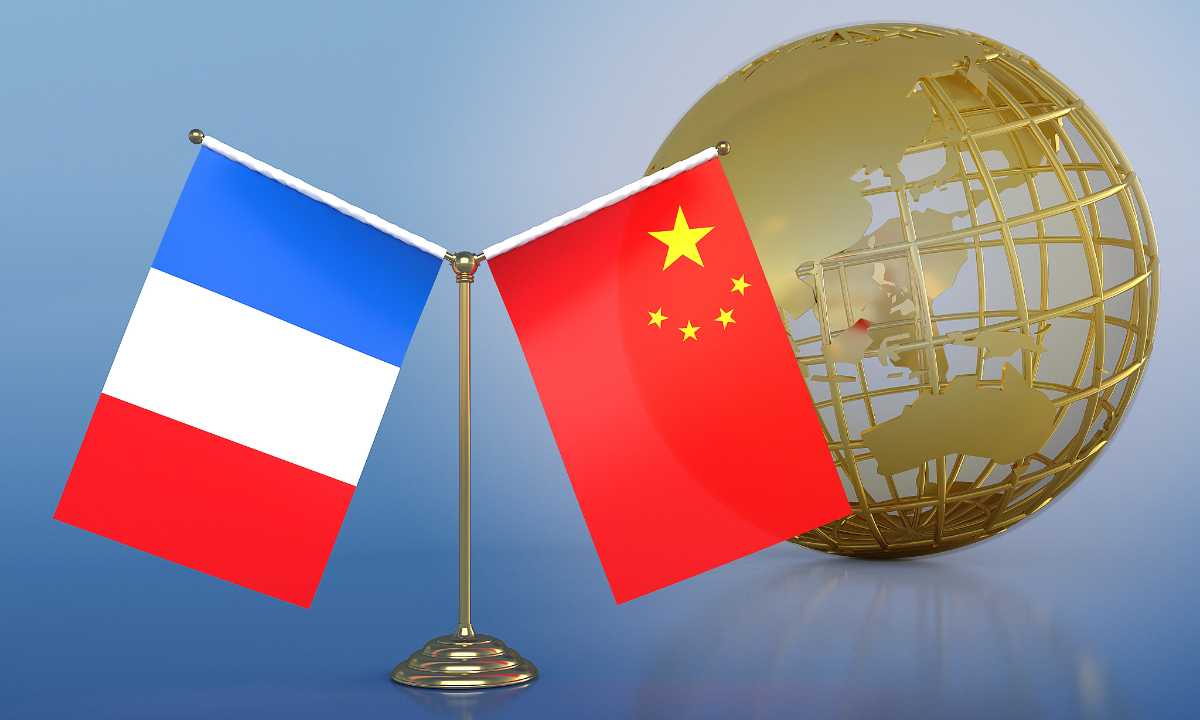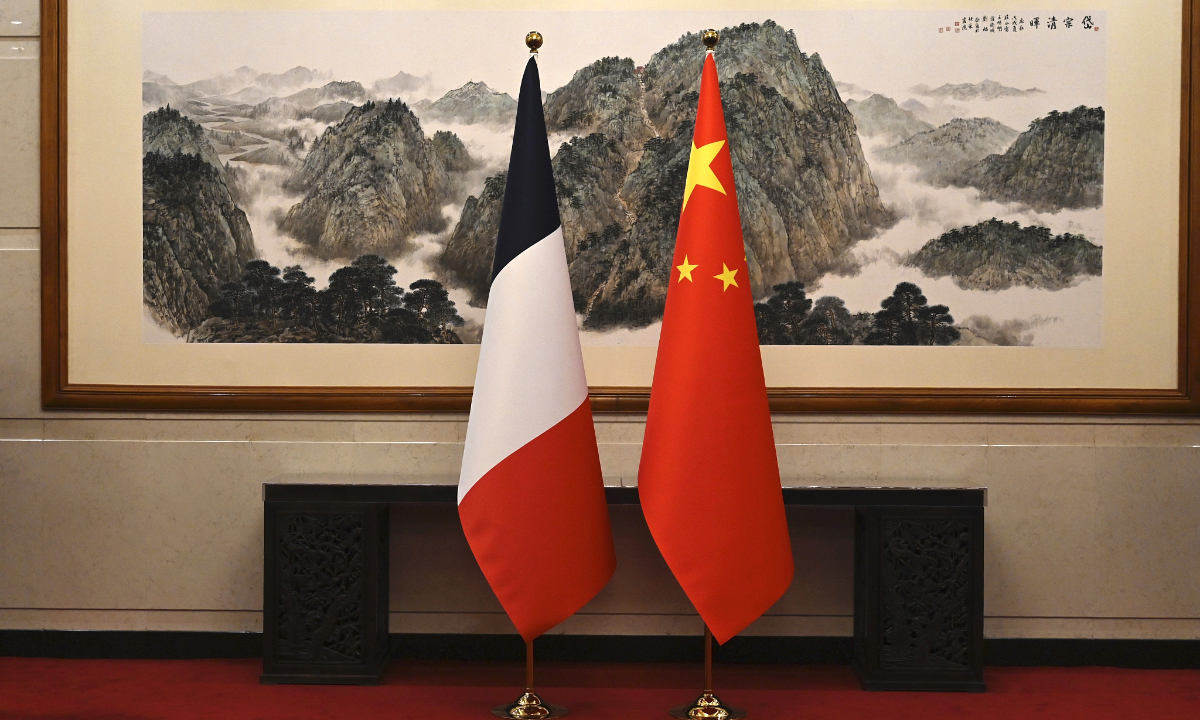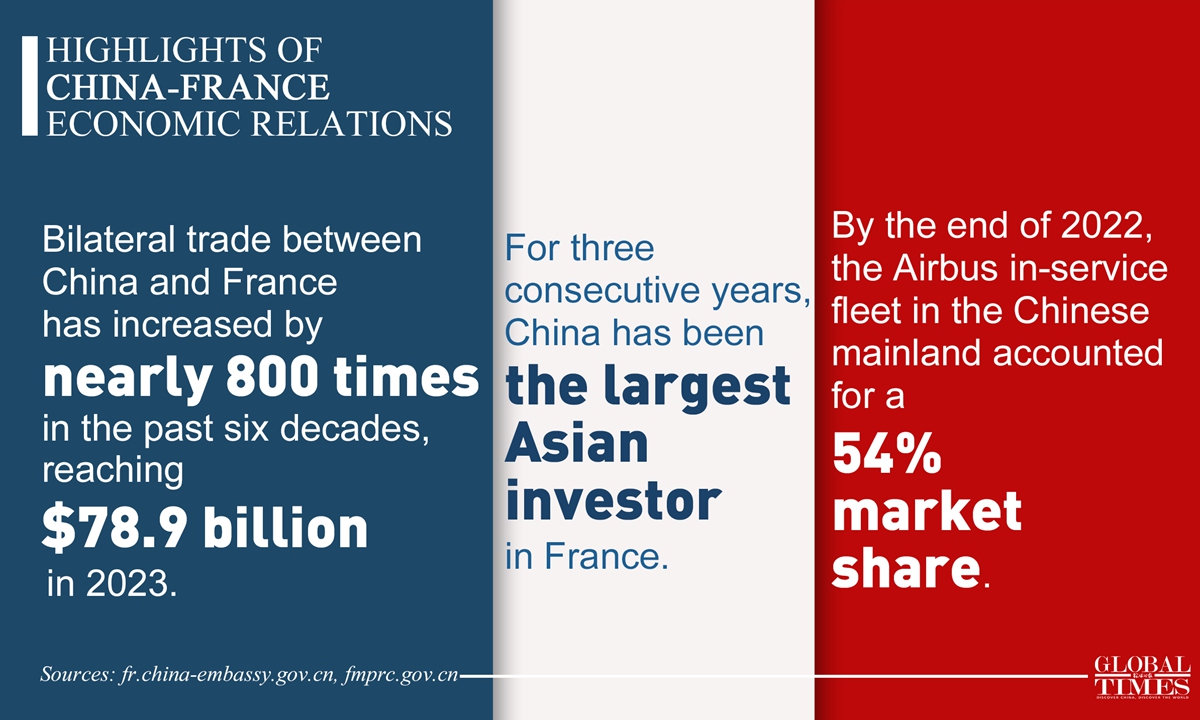
China France Photo:VCG
At a time when Western media outlets have focused on the potential trade dispute between China and the EU, the attention on how China-France economic and trade relations will gain new momentum for further development has increased significantly.
Behind the complexity of trade relations lies the impact of external factors - such as the uncertainty of the global economic recovery, the escalation of geopolitical conflicts, and most importantly, the US push for a "decoupling" policy toward China - on the economic cooperation between the two countries.
Yet, such complexity is far from derailing the complementarity in bilateral trade relations, which remains an important force for promoting cooperation between the two countries. France was one of the earliest Western countries to invest in and set up joint ventures in China. It was also the first Western country to cooperate with China on civilian nuclear energy, the first Western country to sign an intergovernmental scientific and technological cooperation agreement with China, and the first Western country to open a direct air route with China.
In China-France relations, economic and trade cooperation has always been a crucial stabilizing force. Over the past six decades, bilateral trade has surged by more than 800 times. Now, France is China's third-largest trading partner within the EU, with bilateral trade reaching $78.9 billion in 2023, while China is France's largest trading partner in Asia and the seventh-largest globally.
The fruitful development of bilateral economic and trade relations lies in the solid foundation of cooperation and the highly complementary economic structures of both sides. China has a competitive advantage in manufacturing, electronics, and machinery and equipment, while France excels in aerospace, nuclear energy, high-end consumer goods and agricultural products.
Such economic structures provide both countries with vast trade and investment opportunities.
In particular, with China's economic restructuring in recent years, the upgrading consumption trend has brought new opportunities for France's consumer goods and services industries.
Bilateral agricultural has been on the rise over the past 10 years, according to Chinese media reports. When French President Emmanuel Macron visited China in April 2023, the two countries signed cooperation agreements aimed at strengthening their partnerships in agriculture, food, and technology. French meat, grain, poultry and other industries are actively pursuing opportunities in the Chinese market.
In the first two months of this year, French direct investment in China surged by 585.8 percent year-on-year, according to data from China's Ministry of Commerce. If anything, it reflects the optimistic expectations of French companies for China's economic potential and their recognition of the vitality of the Chinese market.
Practical cooperation will continue to thrive, with opportunities not only in traditional sectors such as aerospace and nuclear energy, but also in emerging areas like the energy transition and green development.
With this promising future, it is essential for both sides to work together to protect their cooperation momentum from potential disruptions caused by the "decoupling" or "de-risking" push.
Continued practical cooperation in bilateral economic ties is not only essential for the relationship between the two countries, but also plays a crucial role in advancing the broader long-term China-Europe relationship.
A think tank report titled "China-EU Cooperation on Environment and Climate: Progress and Prospects" was released on Friday. The report called for the further strengthening of the bilateral green partnership and making contributions to promoting a cleaner and more beautiful world.
China is making efforts to improve the access of foreign companies to the Chinese market, as seen in the shrinking negative list for foreign investment and the improving investment climate.
It is sincerely hoped that France will meet China halfway, fostering greater bilateral trade and investment cooperation through enhanced communication and coordination, ultimately contributing to the stability and prosperity of the global economy.



